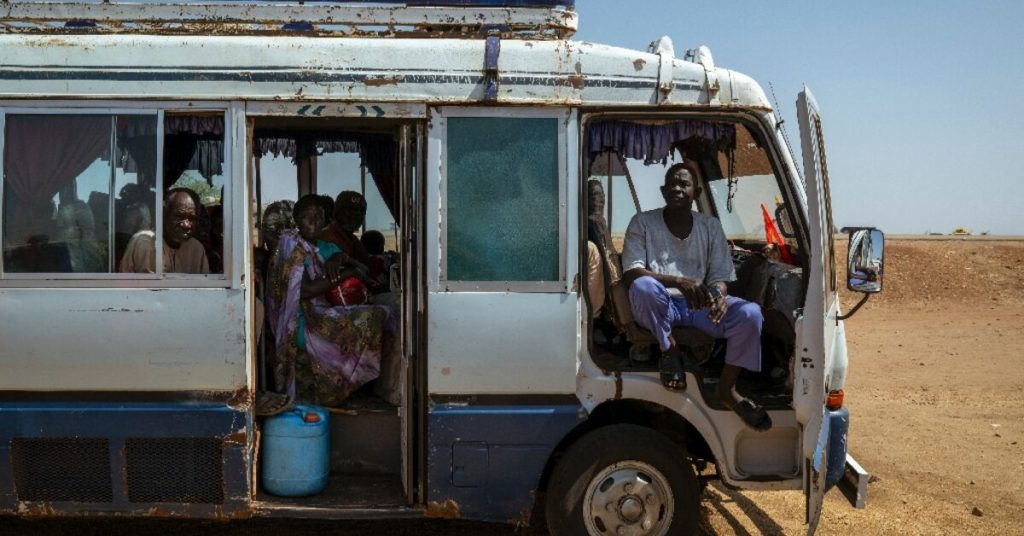The ongoing conflict in Sudan has taken another complex turn, with the paramilitary Rapid Support Forces (RSF) announcing a unilateral three-month ceasefire. This move comes on the heels of the Sudanese army’s rejection of a US-led truce proposal, highlighting deep divisions and the challenging path towards peace in the war-torn nation. The future of Sudan’s conflict remains incredibly uncertain, and this latest development only adds to the layers of political maneuvering and humanitarian crisis.
إعلان الهدنة من جانب قوات الدعم السريع ورد فعل الجيش (RSF Ceasefire Announcement and the Army’s Reaction)
On Monday, Mohamed Hamdan Daglo, commander of the Rapid Support Forces (RSF) and formerly the deputy to army chief Abdel Fattah al-Burhan, declared a “humanitarian truce” lasting three months. Daglo stated the ceasefire was a response to international mediation efforts, specifically mentioning initiatives from US President Donald Trump and the Quad group – the United States, Saudi Arabia, the United Arab Emirates, and Egypt. This seemingly conciliatory gesture stands in stark contrast to the army’s firm stance.
The Sudanese army, led by al-Burhan, swiftly dismissed the US proposal on Sunday, labeling it “the worst yet” and unacceptable to their government, which is currently based in Port Sudan. Al-Burhan accused the Quad group of bias, particularly singling out the UAE, and claimed US envoy Massad Boulos was merely echoing positions from Abu Dhabi. This accusation has brought regional dynamics to the forefront of the crisis.
اتهامات بالتحيز ودعم الأطراف المتنازعة (Accusations of Bias and Supporting Conflicting Parties)
The army’s rejection of the truce proposal and criticism of the Quad group center on accusations that the mediators are not impartial. Al-Burhan expressed concern that the proposal “eliminates the armed forces, dissolves security agencies and keeps the militia where they are,” suggesting it disproportionately disadvantages the Sudanese army and effectively legitimizes the RSF.
Adding fuel to the fire, the UAE has faced broad accusations of providing support to the RSF, claims Abu Dhabi consistently denies. Following al-Burhan’s rejection of the US plan, the UAE’s Minister of State for International Cooperation, Reem bint Ebrahim Al Hashimy, publicly condemned al-Burhan for “consistently obstructive behaviour,” suggesting frustration with his negotiating tactics. This blunt criticism from a key regional player underscores the sensitivity of the situation and the difficulty of achieving a unified international approach to resolving Sudan’s conflict. The involvement of external actors complicates the situation, raising questions about the true motives behind the diplomatic efforts.
دور الوساطة الدولية (The Role of International Mediation)
The efforts of the US, Saudi Arabia, UAE, and Egypt, collectively known as the Quad group, represent a significant attempt to broker peace in Sudan. However, the recent developments expose the fragility of the mediation process. Previous plans, including one in September, were also rejected by the army-aligned government, which objected to proposals excluding both the military and the RSF from the post-war political landscape. The current impasse highlights the difficulty in finding common ground between the warring factions, especially when perceived external interference comes into play.
الوضع الإنساني وتصريحات متبادلة حول شروط السلام (Humanitarian Situation and Conflicting Statements on Peace Conditions)
The humanitarian situation in Sudan continues to deteriorate. The RSF’s recent capture of El-Fasher in Darfur has led to serious warnings about potential crimes against humanity and even genocide. The ongoing violence has displaced millions, created acute food shortages, and overwhelmed the already strained healthcare system. A successful humanitarian truce is vital to allow aid to reach those in desperate need.
Beyond the ceasefire announcement, both sides have outlined their conditions for a lasting peace. Daglo reiterated his willingness to engage in talks with all actors, excluding the “terrorist Islamist movement of the Muslim Brotherhood and the National Congress” party, formerly led by Omar al-Bashir. Meanwhile, al-Burhan insists any agreement must necessitate the full withdrawal of the RSF from occupied territories and their confinement to designated zones, framing the conflict as a “war for survival.” He also countered Daglo’s accusations regarding the army’s alleged ties to the Muslim Brotherhood, stating such claims are baseless.
آفاق السلام والتحديات المستقبلية (Prospects for Peace and Future Challenges)
Unfortunately, a history of broken ceasefires casts a long shadow over this latest announcement. Over the past two years, numerous agreements to halt the fighting have been violated by both sides, indicating a profound lack of trust and commitment. The recent escalation of violence, particularly in Darfur, underscores the urgent need for a sustained and comprehensive peace process.
While Trump’s expressed willingness to intervene is a new element, the underlying issues – power sharing, the future role of the military, and the integration of the RSF – remain deeply contested. The key to resolving Sudan’s conflict may lie in addressing the core grievances of both sides and ensuring a genuinely inclusive political process that prioritizes a return to civilian rule and addresses the root causes of instability. Without this, the cycle of violence is likely to continue, further devastating Sudan and its people. Seeking a long-term resolution also demands a reevaluation of international mediation strategies, ensuring neutrality and addressing the concerns of all Sudanese parties. Finally, sustained international pressure remains critical to enforce any future agreement and prevent further violations.

